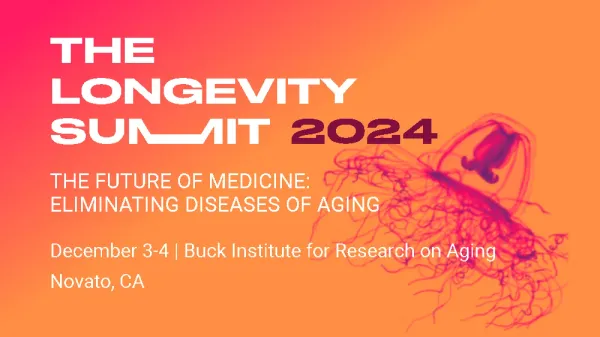What the Greenland Shark's Genome Tells Us About Aging and Longevity
Discover how the genome of the Greenland shark, one of the longest-living animals on Earth, provides vital clues to understanding human longevity.

In a major scientific breakthrough, researchers have taken a giant step forward in the quest to understand extreme longevity by successfully compiling the most complete genome of the Greenland shark, a creature known for its astonishing lifespan. Living for over 500 years, this deep-sea giant has intrigued scientists, who hope its biological secrets could hold the key to extending human life. The genome sequencing, completed in September 2024, sheds new light on why these sharks live so long, providing potential insights that could reshape our approach to human aging and longevity.
A Deep Dive into Longevity: The Fascination with the Greenland Shark
The Greenland shark has long held the record for the longest-known lifespan of any vertebrate, reaching more than five centuries of life. These sharks, which mature only after 150 years, dwell in the cold, deep waters of the Arctic and North Atlantic. Their slow metabolism and low exposure to environmental stressors are believed to contribute to their remarkable longevity, yet scientists suspect the real answer lies in their genes.
The extraordinary lifespan of the Greenland shark isn't merely an adaptation to its cold, dark habitat. Researchers believe it is genetically ingrained, which has spurred an intense scientific effort to uncover how this species achieves such a long life. The hope is that by understanding the shark’s biology, scientists can apply similar principles to human aging, ultimately extending the human lifespan.
Decoding the Genome: What the 2024 Study Revealed
The comprehensive genome sequencing of the Greenland shark unveiled a wealth of information about how these sharks manage to live for centuries. Some of the key discoveries include:
- Enhanced DNA Repair Mechanisms: Greenland sharks appear to have highly efficient DNA repair systems, which are critical for longevity. Over time, DNA damage accumulates in cells, leading to malfunction and diseases like cancer. The sharks’ superior ability to repair their DNA helps them stave off age-related cellular damage, providing vital clues for human aging research.
- Genes for Slow Metabolism: The genome analysis showed that the sharks possess genes optimized for an extremely slow metabolic rate. Living in near-total darkness, the cold, deep-sea environment likely supports this slow metabolism, reducing oxidative stress—a known contributor to aging. This finding suggests potential pathways for metabolic interventions in humans to slow down the aging process.
- Low Cancer Incidence: Another critical finding is the shark’s surprisingly low rate of cancer, linked to both their slow metabolism and robust DNA repair systems. The genetic mechanisms preventing cancer in these sharks could inspire new ways to mitigate the risk of cancer in humans, particularly as we age.
Implications for Longevity Research
These groundbreaking genetic discoveries hold significant potential for the future of human aging research. The Greenland shark’s genome isn’t just a scientific marvel—it could be the foundation for developing therapies that enhance human longevity. Some of the areas where this research could have a profound impact include:
- DNA Repair Therapies: One of the hallmarks of aging is the gradual accumulation of DNA damage. Human cells lose the ability to repair this damage efficiently as we age, leading to conditions like dementia and cancer. By studying how Greenland sharks maintain DNA integrity over centuries, researchers hope to develop therapies that enhance DNA repair in humans, potentially extending lifespan and reducing the risk of age-related diseases.
- Metabolic Modulation: The Greenland shark’s slow metabolism is believed to play a vital role in its longevity. If researchers can find safe ways to slow down human metabolism, they might reduce oxidative stress, a driver of cellular aging. This could lead to drugs or dietary interventions that mimic the benefits of a reduced metabolic rate, offering new avenues for age management.
- Cancer Prevention Strategies: The shark’s low cancer incidence provides exciting new research opportunities. By studying the genetic factors that protect Greenland sharks from developing cancer, scientists aim to develop novel cancer prevention methods for humans, particularly as we grow older.
Lessons for Human Longevity: Practical Takeaways
While the Greenland shark may seem worlds apart from humans, the insights gained from its genome offer valuable lessons for promoting human health and longevity. Key takeaways for enhancing the human lifespan include:
- Focus on Cellular Health: One of the keys to longevity is maintaining the health of your cells. Regular exercise, a diet rich in antioxidants, and effective stress management can all contribute to improved cellular health. These habits promote DNA repair and reduce oxidative stress, slowing the aging process.
- Maintain a Balanced Metabolism: Excessive caloric intake and metabolic overload can accelerate aging. By managing their diet and engaging in regular physical activity, humans can keep their metabolism in check, reducing the risk of diseases like diabetes and heart disease.
- Future Longevity Therapies: The advancements in genetic research and DNA repair therapies hold the promise of extending human lifespan. Staying informed about these emerging treatments could one day allow individuals to benefit from breakthroughs in longevity science.
The Future of Longevity Research
While the Greenland shark genome study is a landmark achievement, it marks only the beginning of a larger exploration into the secrets of extreme longevity. Researchers are now shifting focus toward applying these genetic insights to human biology, hoping to develop therapies that slow aging and extend the human lifespan.
One of the most promising prospects is the development of DNA repair treatments aimed at reducing the incidence of age-related diseases like cancer and Alzheimer’s. By enhancing the body’s natural ability to repair itself, such therapies could open new doors for healthier, longer lives.
Additionally, as scientists learn more about the role of metabolism in aging, we can see the rise of metabolic interventions designed to slow aging without compromising the quality of life. The potential for life extension is becoming more tangible as genetic research into longevity accelerates.
Conclusion
The Greenland shark’s genome offers a glimpse into the future of longevity research, holding the keys to some of the most intriguing mysteries of aging. As scientists continue to unlock these secrets, new therapies and interventions inspired by this deep-sea giant could extend human lifespan and enhance overall health in the years to come.
In the meantime, adopting healthy lifestyle practices that prioritize cellular health and metabolic balance can help humans take proactive steps toward living longer, healthier lives. With continued research, the prospect of extended human lifespan through biological innovations looks more promising than ever.
Sources
- The Greenland shark (Somniosus microcephalus) genome provides insights into extreme longevity Arne Sahm, Alexander Cherkasov, Hequn Liu, Danila Voronov, Kanstantsin Siniuk, Robert Schwarz, Oliver Ohlenschläger, Silke Förste, Martin Bens, Marco Groth, Ivonne Görlich, Sonia Paturej, Sven Klages, Bjoern Braendl, Jesper Olsen, Peter Bushnell, Amalie Bech Poulsen, Sara Ferrando, Fulvio Garibaldi, Davide Lorenzo Drago, Eva Terzibasi Tozzini, Franz-Josef Müller, Martin Fischer, Helene Kretzmer, Paolo Domenici, John Fleng Steffensen, Alessandro Cellerino, Steve HoffmannbioRxiv 2024.09.09.611499; doi: https://doi.org/10.1101/2024.09.09.611499





